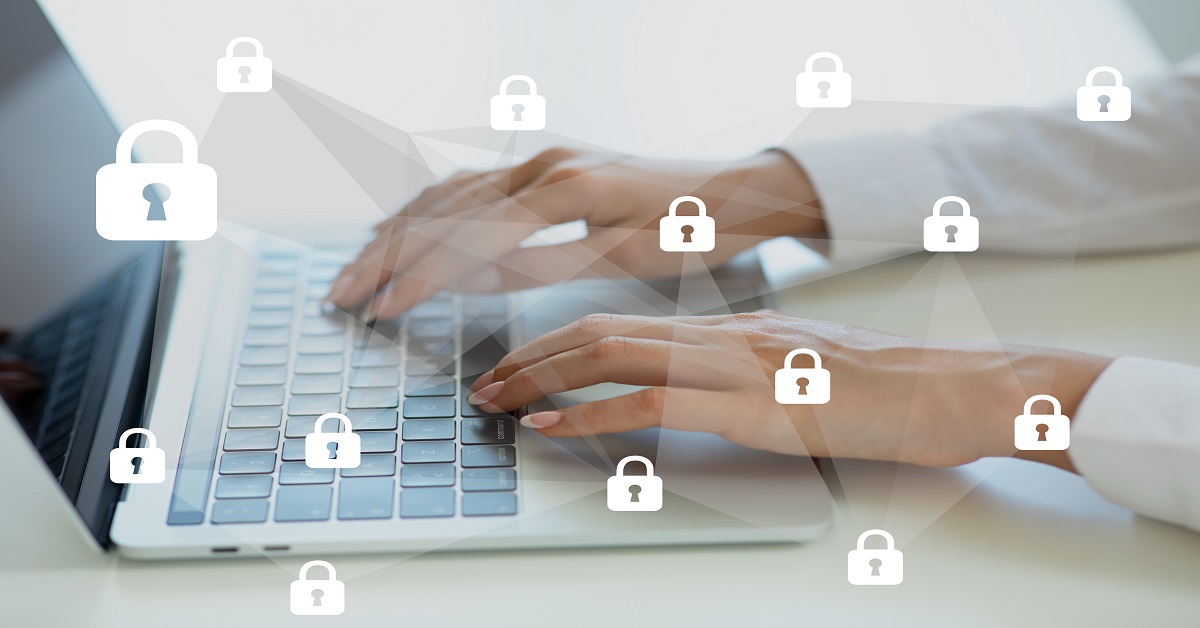
Protecting yourself from identity theft is like playing a game of whack-a-mole. As soon as you take steps to safeguard yourself from one issue, up pops another. And you aren’t alone in this struggle; this is an unfortunate reality of the modern world that we all must manage.
It seems that the latest threat involves checking accounts. In the last few months, an alarming number of friends, clients, and relatives have reported that their checking accounts have been hacked and funds have disappeared. For one friend, it happened twice within two weeks. For each person affected, it has meant hours of time working with their banks to recover the funds (there is no guarantee you will get all your money back) and then setting up new accounts. It also means that a person may not have access to their funds while the incident is being investigated. Lastly, it will take a lot of work to redirect all their automatic debits and credits tied to their checking account to a new account. In short, this is a giant, potentially expensive, time-consuming headache, one which we want to help you avoid.
When we see trends, we like to inform you so that you can take action. What can you do to help mitigate this risk? Below are some suggestions from actual victims and experts in the industry that were compiled by Aura and Bankrate.[1]
Regarding Your Checking Account
- Use credit cards instead of debit cards. A debit card is linked to your checking account and presents the risk of funds being directly removed from your account. Banks vary on how hard they will work to recover your funds. A credit card offers consumer protection against fraud, and most do not make you pay anything out-of-pocket if charges are fraudulent, and you dispute them in a timely manner.
- Enable two-factor authentication on your financial accounts, so that you not only need to provide a password, but also confirm your identity with a code that is texted or emailed to you.
- Download your banking apps from reputable websites, such as the App Store or Google Play. Even better, use the link provided by your bank. The use of fake banking apps designed to look like the real app is a fast-growing problem.
- Ask your bank to require a secret word for any changes made to your account. Do not use anything that you may have mentioned online. Secret words are relatively new, and you may have to ask your bank to add this feature.
- Keep only the funds you need in your checking account and maintain your primary balances in a savings account.
- Sign up for banking alerts for password changes, failed login attempts, personal information updates, and new credit and debit transactions. These alerts are instantaneous and allow you to contact your bank immediately if you notice suspicious activity.
- If you receive a check that you were not expecting or suspect is fraudulent, reach out to the issuing bank to confirm it is legitimate before depositing it in your account. Sometimes these checks have fine print that will legally bind you to a loan, membership, or other long-term commitment.
Other Best Practices
- Use strong, unique passwords for each account. If you can’t remember all your passwords, consider using a password manager. A password manager will not only store all your passwords, but it can also generate distinctive, secure passwords, and remember them for you.
- Freeze your credit at the three credit bureaus. Freezing your credit stops thieves from creating new accounts using your personal information.
- Beware of phishing messages, calls, texts, and emails that look like they are sent by your bank. Never click links in emails or text messages, as that may install malware that infects your device. Call the bank if in doubt, but don’t use the phone number posted in the suspicious message.
- Beware of ATM or any payment terminals like those at gas stations. Thieves can install a plastic overlay on top of the keypad and capture all your information. Avoid any ATMs or payment terminals that appear damaged or have loose parts. Use contactless payments when possible.
- Mail checks by going directly inside your post office instead of placing in them a local mailbox.
- Review your credit report annually to make sure your identity has not been compromised. Every person is entitled to a free report from each of the credit bureaus (TransUnion, Equifax, and Experian) every year. Go to AnnualCreditReport.com to request a report.
- Consider using a VPN (Virtual Private Network) to keep your internet connection private and safe. Never complete banking on your phone, computer, or tablet in a public space without using a VPN.
- Add a cybersecurity rider to your homeowner’s insurance. The type of coverage available and the cost vary by the insurance carrier, but it MAY be useful if you are the victim of identity theft.
- Shred (or attend our Paper Shredding event in the fall) any sensitive documents you no longer need.
- Do not send sensitive information (anything including your birthday, Social Security number, or account numbers) in an email.
As you can guess, I could go on and on with steps we should all take to improve our “digital hygiene.” Please see our data security blogs on our website for more suggestions. Our goal is to try to keep you one step ahead of some of these cybersecurity threats. By making things harder for the criminal, we are hoping they will decide that you are not a worthy target, and will move on to someone else. While you cannot completely shield yourself from all identity theft occurrences, being proactive will most likely save you time, money, and aggravation.
Please contact our SWP team with any questions about the ideas shared in this blog or the steps you can take to protect your wealth.
[1] Some items from this list were compiled from this article from Aura and this article from Bankrate. We encourage you to visit their articles for further reading on these topics.
Disclosure:
This article contains general information that is not suitable for everyone. The information contained herein should not be constructed as personalized investment advice. Reading or utilizing this information does not create an advisory relationship. An advisory relationship can be established only after the following two events have been completed (1) our thorough review with you of all the relevant facts pertaining to a potential engagement; and (2) the execution of a Client Advisory Agreement. There is no guarantee that the views and opinions expressed in this article will come to pass. Investing in the stock market involves gains and losses and may not be suitable for all investors. Information presented herein is subject to change without notice and should not be considered as a solicitation to buy or sell any security.
Strategic Wealth Partners (‘SWP’) is an SEC registered investment advisor with its principal place of business in the State of Illinois. The brochure is limited to the dissemination of general information pertaining to its investment advisory services, views on the market, and investment philosophy. Any subsequent, direct communication by SWP with a prospective client shall be conducted by a representative that is either registered or qualifies for an exemption or exclusion from registration in the state where the prospective client resides. For information pertaining to the registration status of SWP, please contact SWP or refer to the Investment Advisor Public Disclosure website (http://www.adviserinfo.sec.gov).
For additional information about SWP, including fees and services, send for our disclosure brochure as set forth on Form ADV from SWP using the contact information herein. Please read the disclosure brochure carefully before you invest or send money (http://www.stratwealth.com/legal).


